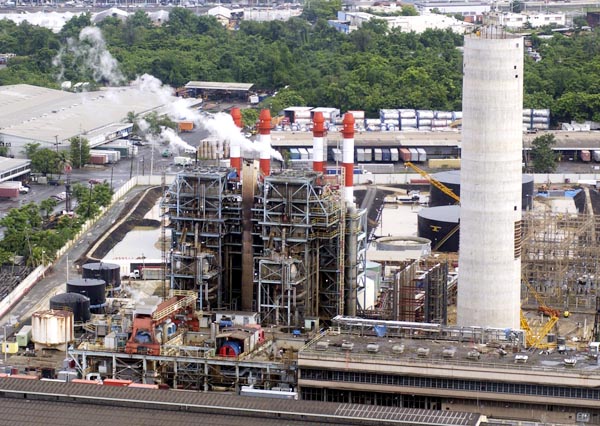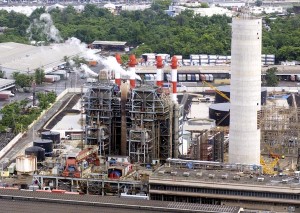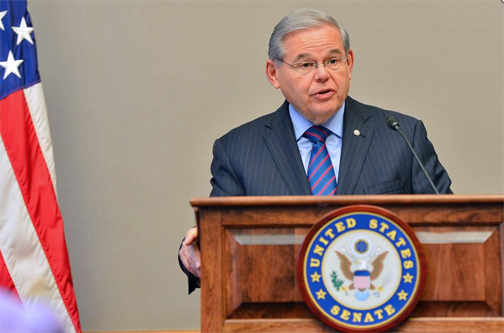US lawmakers ask OBoard for energy reform plan for PR


“As you know, most of the electric infrastructure in Puerto Rico has a median age life of 44 years, whereas the average depreciable service life of a power plant is 40 years,” the lawmakers note in the letter. (Credit: © Mauricio Pascual)
Four members of U.S. Congress representing both political parties sent a letter to chairman of the Financial Oversight and Management Board for Puerto Rico, requesting details of the Board’s energy reform plan for the island following the devastation of Hurricane Irma.
In the letter sent to Board Chair José Carrión — signed by Reps. Nydia M. Velázquez (D-NY), Tom MacArthur (R-NJ), Raul Grijalva (D-AZ) and Sean Duffy (R-WI) — the lawmakers asked to see the plan created under the Puerto Rico Oversight, Management and Economic Stability Act (PROMESA) to reduce electricity costs for ratepayers prior to its implementation.
They asked for a complete assessment of all progress to date, including the Board’s strategy by no later than Oct. 1, 2017.
“We write with great solidarity for the people of Puerto Rico and all the communities terribly affected by Hurricane Irma. Recovery will be difficult and costly,” the lawmakers said.
“Hurricane Irma, while tragic beyond measure, provides an opportunity for significant transformation of Puerto Rico’s electrical system,” they said.
Last week, Hurricane Irma sideswiped Puerto Rico as a Category 5 storm, downing hundreds of trees and public utility poles throughout most of the island. The storm knocked out the Puerto Rico Electric Power Authority, leaving more than a million residents in the dark.
As of press time, service had yet to be fully restored in parts of San Juan, Guaynabo and so-called isolated “pockets.”
“Puerto Rico was skirted — for the most part — from the terrible damages that were forecasted ahead of Irma’s passage. However, the storm did have devastating effects to some municipalities, particularly Culebra,” they further noted.
“It also exposed vulnerabilities in the island’s infrastructure and its electric grid. To this end, we are requesting that the Oversight Board provide us with details regarding its energy reform plan for the island,” they stated in the letter.
In the letter, the lawmakers spoke critically of the public corporation.
“Past and present failures of the island’s system serve as a stark reminder for the need to dismantle the Commonwealth’s monopoly over its utilities and invest in its aging and inefficient energy systems, which have consistently been a roadblock for economic competitiveness,” they said.
Puerto Rico’s electricity rates are a central element of its deep economic crisis and will be a critical driver of its economic recovery. For businesses and consumers, Puerto Rico’s electric system has consistently been characterized by high prices and unreliability, they said.
In the letter, they advocate for “additional competition and investments that enable reliable and affordable electricity for business and consumers.”
They also praised the Oversight Board for putting PREPA under PROMESA’s Title III bankruptcy process, so that it may restructure its debts in an orderly manner.
However, it noted that in the recently approved Fiscal Plan, PREPA has been instructed to plan for a reduced average target rate of 21 cent/kWh, which they said “is not nearly enough since it would still be significantly higher than other industrialized island-states and the Caribbean economic region.”
They lobbied for the introduction of multiple service providers, infrastructure investments and increased use of renewables to bring reliable and affordable electricity to consumers.
“The main benefit of the majority of renewable sources is that they do not need fuel to generate electricity, and thus eliminate the variable costs associated with fossil fuels,” they said.
“Puerto Rico’s geographical location and tropical climate make it an ideal candidate to generate power from multiple energy sources. As a result, lower electricity rates for consumers and the business sector could provide an immediate stimulus for the island’s economy. The money that is freed up could be reinvested in the island,” the lawmakers explained.
“While we can agree that private investment is needed to allow for competition and independent generation of electricity, we must ensure that decisions are carefully constructed so as to prevent a public monopoly of morphing into a private monopoly,” the lawmakers noted.
“We must be clear: Puerto Rico’s energy grid and distributions channels must not be used as a reward for special interests,” they concluded.












